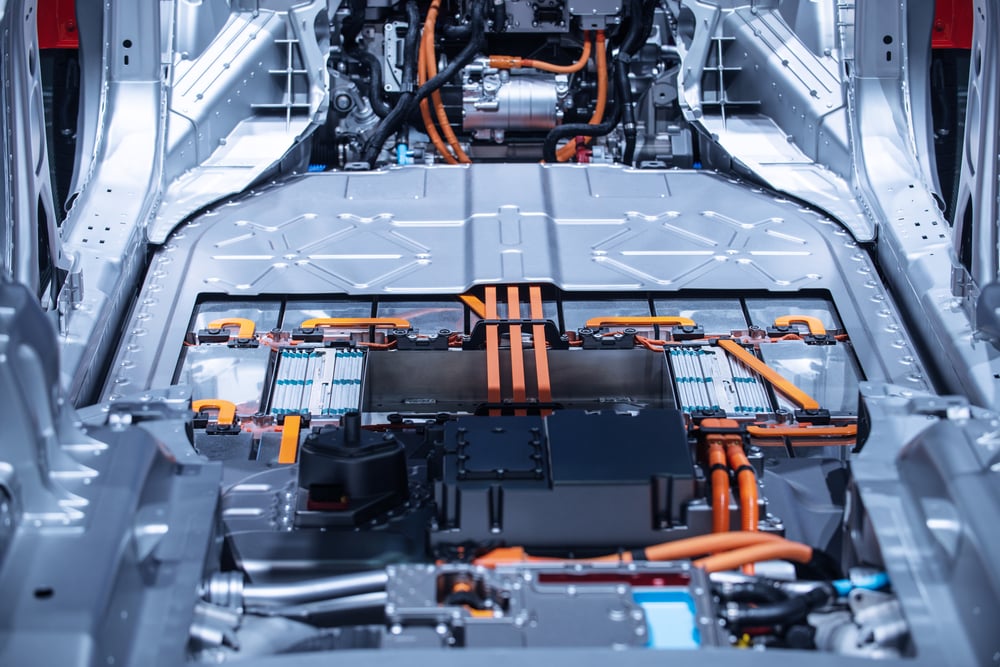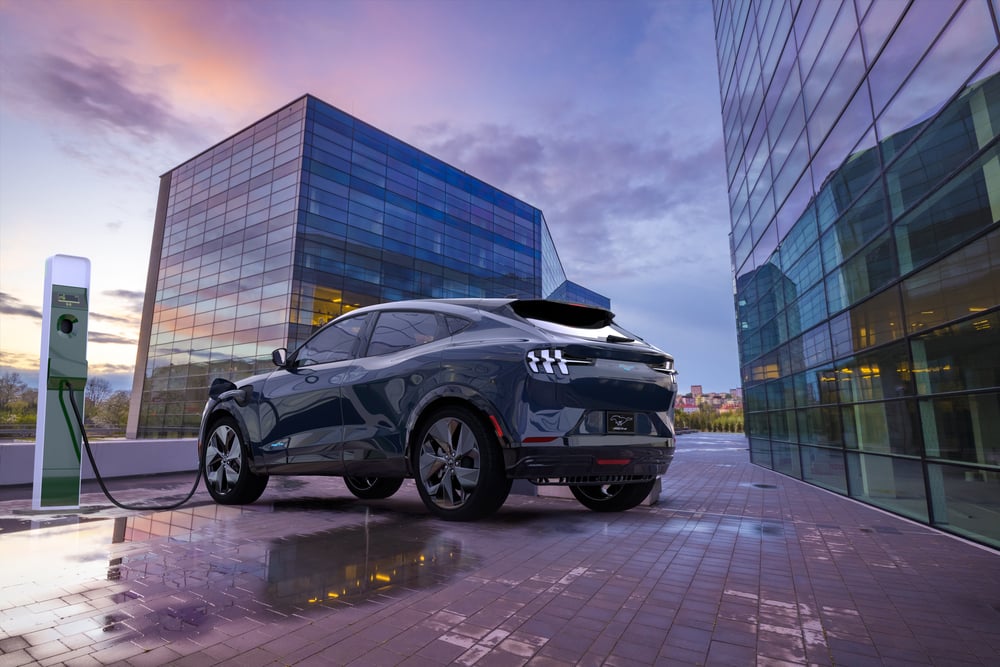Mexico has a long history of automotive manufacturing, dating back to 1925. What began with one U.S.-based OEM has turned into an extensive network of suppliers, infrastructure, and qualified labor, all tailored to support automotive manufacturing growth. This look at the industry's past may provide a hint of what lies in store as the automotive sector prepares for a new chapter in its evolution.
With Tesla driving demand for electric vehicles and infrastructure sky-high, virtually all major car manufacturers have now committed to switching their processes to support all-electric vehicle manufacturing. This switch is likely going to require new investments in existing factories because, as Wards Auto reports, "Using existing facilities and platforms saves a lot of money upfront, but it means you'll be facing competitors with more efficient products made in more efficient plants." However, several automotive plants have been retooling in recent years anyway to improve efficiency and support the switch to Industry 4.0. For some automotive manufacturers, flexibility has long been the name of the game.
Many of these new electric vehicles are being manufactured in Mexico, where factories are already being adapted and workers trained to support the industry's evolution. That makes right now—when OEMs are seeking new partners who can support this transition—the time to invest in a low-cost automotive manufacturing operation in Mexico.
Car manufacturers in Mexico going electric
In the first nine months of 2019, Mexico produced roughly $8 billion worth of electrical automotive parts, MexicoNOW reported, an increase of 8.3% compared to the prior year. That was before Volkswagen, GM, Ford, and other major automakers pledged their commitments to going all-in on electric passenger vehicles in the next ten to twenty years. This will further shake up automotive supply chains as companies adapt to supply new components, potentially using new manufacturing processes, to meet this new trend.
Car manufacturers in Mexico are already working to move over to electric production. Nearly one hundred years after Ford Motor Co. established its assembly line in Mexico, the company is making big changes to its lines to produce electric versions of its classic Mustang. The Mustang Mach-E SUV, Ford's first electric car, is being assembled at its plant in Cuautitlán, which has been scaled up to support this shift in processes and of a battery-powered F-150 pickup using the same mechanical foundation as the Mach-E to streamline processes. The company has reportedly invested $420 million in the plant.
GM is aiming for 2023 as the start of production of an all-electric vehicle at its facility in Ramos Arizpe, part of the Saltillo metropolitan area. The plant has previously made the Chevy Blazer and Equinox, but Automotive News reports that the OEM will be building two battery-electric crossovers for Honda Motor Co., at least one of which will be produced at the facility in Mexico.
While there's a clear major impact to OEMs, industry insiders are focusing on how the shift will impact parts providers. While less labor may be required to assemble electric vehicles, there are more components that will be making up an increasingly large proportion of each car's total value. Fabrice Theveneau, head of global equities for Lyxor Asset Management, predicts that with this shift component makers will soon be selling more products to OEM as they work to transform their industrial base. For example, he expects demand for tires to grow, since electric vehicles can drive further than a conventional car.
Supply chain changes for Mexico
As Daniel Harrison, automotive analyst for Ultima Media's business intelligence unit, told Automotive Logistics in Feb. 2020, "The whole supply chain [in Mexico] is geared around the internal combustion engine almost entirely. The majority of batteries are still being imported…But we do see potential."
To comply with USMCA requirements for domestic content, automotive manufacturers have been looking for strategies to boost North American content in electric vehicles where one of the primary components—its lithium-ion batteries—are largely made in Asia. As Electric Autonomy reports, car manufacturers are considering using recovered lithium and related materials from lithium-ion batteries recycled and then manufactured in North America would adhere to USMCA's restrictions. In fact, Chinese company Ganfeng has already announced a lithium battery recycling plant in Mexico.
Ganfeng, along with British minerals company Bacanora, is a partner in Mexico's lithium mine in Sonora, which has one of the largest deposits in the world. The Sonora mine and battery recycling plant is aiming to become a major part of the regional supply of lithium and other valuable elements.
Other OEMs, on the other hand, are looking at ways to make their EV components in-house, including battery cells. Moving this type of component production in-house is likely to require new skillsets. This is another area where Mexico has an edge.
Skillsets car manufacturers need in Mexico
Mexico has long been matriculating more engineers than its neighbor, the United States. This skillset is likely to prove particularly valuable in supporting car manufacturers' changing needs on the factory floor.
In addition to this tertiary education, Mexico has a long history of vocational training, dating back to the 1990s when Mercedes-Benz trained industrial electronics technicians through its partnership with vocational schools in the State of Mexico. There are numerous other examples of company-led training. In fact, companies operating within Tetakawi's Roca Fuerte manufacturing community are able to make use of the on-site Advanced Technology Training Center (CEFTA) to tailor technical training so that workers are ready to meet specific job demands.
Audi's facility in San José Chiapa, Puebla, uses the German "dual training" system as well. The automaker has partnered with Universidad Tecnológica de Puebla (UTP) to provide apprenticeships at Audi Mexico. Of the 77 apprentices employed from 2016 through 2019, all were offered permanent positions at the facility. This training was particularly necessary as the facility was lauded as one of the most advanced factories in the world when it opened in 2016. The factory was built with a focus on smart logistics. The plant is equipped with Radio Frequency Identification antennas that are used to better coordinate production to match material and container availability. The company also has located a training center on-site to support ongoing training for its more than 5,200 employees.
Find your place in the automotive industry transformation
The electric vehicle race is already off and, while Tesla may be ahead of the pack with its technology and knowledge, it won't be alone long in commanding electric vehicle market share. Now is the time for OEMs to get create and component makers to prove their worth. All players in the evolving automotive industry will need to find ways to drive up innovation and drive down costs. A manufacturing operation in Mexico is one way to gain this edge.
If you're ready to reach your full potential in Mexico, contact Tetakawi today.
Subscribe
Sign up and stay informed with tips, updates, and best practices for manufacturing in Mexico.



.jpg)

